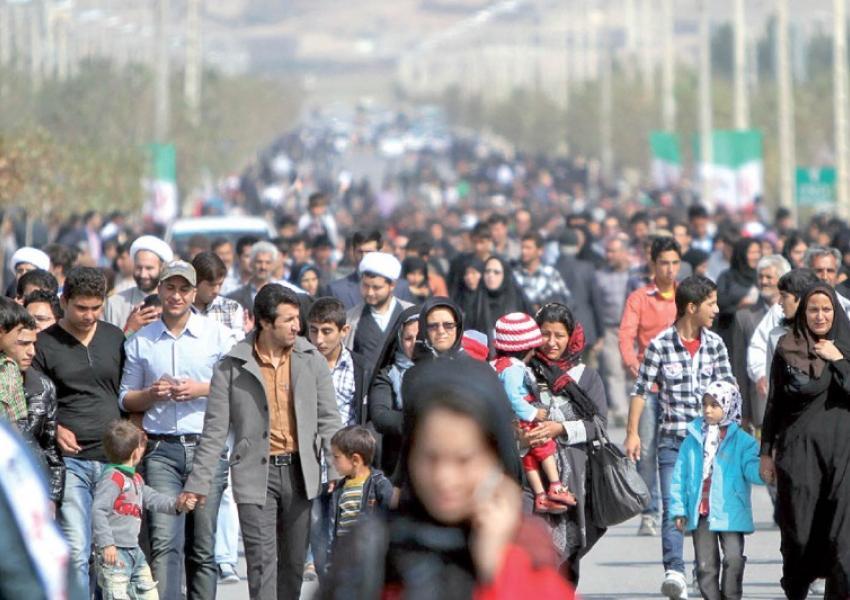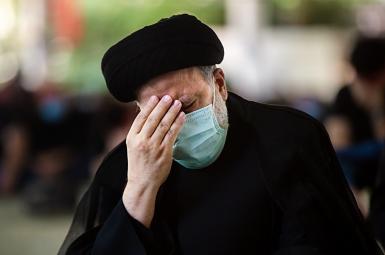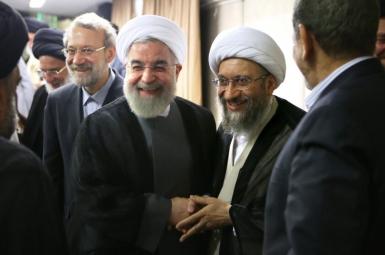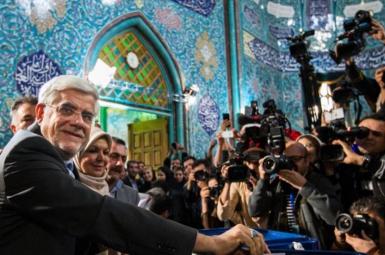
Iran Reformist Figure Warns Of Low Turnout In Presidential Election
A top official at Iran's biggest reformist party has warned that a low turnout in the upcoming June presidential election could lead to all sorts of dangers for the regime.
Ms. Azar Mansouri the deputy secretary general of the reformist Unity of Nation Party also warned that a turnout under 50 percent seriously threatens the nature of Iran's political system as a republic.
Speaking to the Iranian Labor News Agency (ILNA) on Tuesday, February 2, Mansouri also warned state officials against undermining the importance of people's vote in the regime's legitimacy.
The fact that a centrist politician like President Hassan Rouhani has not been able to bring about any meaningful reforms has convinced many voters that no matter who they choose the dominant conservatives, with Supreme Leader Ali Khamenei's support, have the final say.
Azar is not the only person raising the prospect of a low turnout as the June presidential elections nears. Many articles and comments in local media are raising the issue from their own respective political vantage points. The hardliner Tasnim website blames failures of the Rouhani administration, while others hint at US sanctions to be the main cause of hardships and disillusionment.
The latest parliamentary election in February 2020, marked the lowest turnout in the history of elections in Iran since the 1979 Islamic revolution with a turnout around 22 percent in the capital Tehran. A low turnout in parliamentary by-elections held September proved to be more alarming for officials in terms of the Islamic ruling system's diminishing legitimacy.
Participation plunged to 8 percent in 11 constituencies in various parts of the country.
Politicians and political analysts had warned that marginalizing the country's reform camp would inevitably lower the turnout, but they did not expect that voters' disillusionment would lower the turnout to an unprecedented low level.
User comments last September about the low turnout were revealing. According to news agencies such as the IRGC-linked Tasnim and dozens of other agencies and social media users, the main characteristic of the by-election was its extremely low turnout.
In the previous presidential elections, the highest turnout occurred in the 7th round in 1997 when nearly 80 per cent of eligible voters cast ballots. The lowest turnout occurred in the 6th round in 1993 with less than 51 per cent. In the latest Presidential election in Iran in 2017 the turnout was estimated to be around 45 percent.
Elsewhere in her interview with ILNA, Ms. Mansouri criticized the system for "being allergic to referendum," adding that relying on the people's votes in referenda is a key part of the Iranian Constitution. Rouhani and former President Mohammad Khatami called for referendum on various matters but `supreme Leader Ali Khamenei and other hardline clerics strongly opposed the idea, fearing that referring to the people's vote might lead to a demand to hold a referendum on the very question of an Islamic government.
Mansouri said that the whole nation should have their say in determining the fate of the country. She pointed out that the minority are not supposed to rule.
Ms. Mansouri said limiting the people's choices, as it was the case in the 2020 election, has led to the biggest drop in election turnout in the past 42 years. She stressed that only free and fair elections, and when needed holding referendum can meet the majority's demands.
In January, reformist analyst Sadeq Zinbakalam predicted a low turnout in June’s presidential election, and a victory for a hardliner candidate. He also predicted a 20-30 percent turnout, down from the 73% officially reported in 2017.
Zibakalam also blamed Rouhani for the declining turnout. “The 2021 election is dead,” Zibakalam said. “The 24 million people who voted for Rouhani in 2017 will not turn up at the polls…Rouhani turned his back on those who voted for him because he no longer needed them. He ignored them as if he was the President of another country.” Zibakalam said. Rouhani, a centrist in Iran’s political spectrum who won with reformist support in the 2013 and 2017 elections, had in effect joined hardliners and “put an end to the idea of reforms.”







